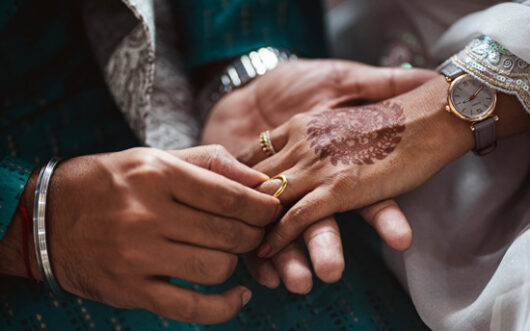Family-Based Immigration
The steps to obtain a family-based green card—officially known as a permanent resident card—vary based on the qualifying family relationship and whether you are living inside the United States or outside.
If you would like to petition (sponsor) a family member for a green card or you are a foreign national that wants to permanently move to the United States, this article provides a basic overview of the eligibility categories and family-based green card process.
Immediate Relative of a U.S. Citizen
 If you are an immediate relative of a U.S. citizen, you can become a lawful permanent resident (get a Green Card) based on your family relationship if you meet certain eligibility requirements. A visa is always available for immediate relatives. You are an immediate relative if you are:
If you are an immediate relative of a U.S. citizen, you can become a lawful permanent resident (get a Green Card) based on your family relationship if you meet certain eligibility requirements. A visa is always available for immediate relatives. You are an immediate relative if you are:
- The spouse of a U.S. citizen
- The unmarried child under 21 years of age of a U.S. citizen
- The parent of a U.S. citizen (if the U.S. citizen is 21 years of age or older)
The immediate relative if currently is in the United States is eligible for a Green Card by filing an Adjustment of Status application provided the immediate relative is present in the United States after being “inspected and admitted” or “inspected and paroled” by an immigration officer. Further, the relationship to the family member who filed the Petition for Alien Relative (Form I-130), for you still exists. The immediate relative should not have any applicable bars to adjustment, and also must be admissible to the United States for lawful permanent residence.
If the immediate relative is a spouse or minor child of a U.S. citizen, each must independently qualify for a Green Card and file their own application. They cannot qualify for a Green Card as a derivative beneficiary on the immediate relative’s application.
If the immediate relative has been married to the U.S. citizen petitioner for less than two years at the time the Adjustment of Status application is approved, USCIS will grant lawful permanent resident status for two years on a conditional basis. The immediate relative will need to meet additional requirements and file a Petition to Remove Conditions on Residence (Conditional Permanent Residence) before USCIS will remove those conditions.
Green Card for Family Preference Immigrant
U.S. immigration law allows certain noncitizens who are family members of U.S. citizens and lawful permanent residents to become lawful permanent residents (get a Green Card) based on specific family relationships. Other family members eligible to apply for a Green Card are described in the following family “preference immigrant” categories:
- First preference (F1) - unmarried sons and daughters (21 years of age and older) of U.S. citizens
- Second preference (F2A) - spouses and children (unmarried and under 21 years of age) of lawful permanent residents
- Second preference (F2B) - unmarried sons and daughters (21 years of age and older) of lawful permanent residents
- Third preference (F3) - married sons and daughters of U.S. citizens
- Fourth preference (F4) - brothers and sisters of U.S. citizens (if the U.S. citizen is 21 years of age and older)
The spouse or unmarried child who is under 21 years of age of a family-based principal applicant, may apply for a Green Card as a derivative applicant.
Green Card for Fiance’(e) of U.S. Citizen
U.S. immigration law allows a U.S. citizen to petition for an alien fiancé(e) to obtain a K-1 nonimmigrant visa to travel to the United States and seek admission. Within 90 days after being admitted as a K-1 nonimmigrant, the alien must enter into a bona fide marriage with the U.S. citizen who filed the Form I-129F, Petition for Alien Fiancé(e), on his or her behalf.
The alien fiancé(e) after being admitted to the United States as a K-1 nonimmigrant and marrying the U.S. citizen petitioner within 90 days can then apply for lawful permanent resident status in the United States (get a Green Card) through the alien spouse and is eligible to receive an immigrant visa. Once the alien fiancé(e) marries, he/she is treated as an immediate relative. If the alien fiancé(e) after being admitted to the United States does not marry the U.S. citizen petitioner, the alien fiancé(e) generally cannot apply for a Green Card based on any other Green Card eligibility category. There are some limited exceptions. If the alien fiancé(e) has been granted U nonimmigrant visa status (for victims of qualifying criminal activity) or T nonimmigrant visa status (for victims of a severe form of trafficking in persons) while in the United States, he/she may apply for a Green Card based on any eligibility category that applies to them. The alien fiancé(e) may also depart the United States to seek a Green Card on a different basis.
The alien fiancé(e) can file an Adjustment of Status application. The alien fiancé(e) should not have any applicable bars to adjustment, and also must be admissible to the United States for lawful permanent residence.
If the alien fiancé(e) has been married to the U.S. citizen petitioner for less than two years at the time the Adjustment of Status application is approved, USCIS will grant lawful permanent resident status for two years on a conditional basis. The alien fiancé(e) will need to meet additional requirements and file a Form I-751, Petition to Remove Conditions on Residence (Conditional Permanent Residence) before USCIS will remove those conditions.
A child of K-1 nonimmigrant admitted as a K-2 nonimmigrant may apply for Green Card if the parent married the U.S. citizen petitioner within 90 days of being admitted as a K-1 nonimmigrant. The K-1 nonimmigrant should apply at the same time or after K-1 nonimmigrant parent applies for a Green Card. The K-1 nonimmigrant is called a “derivative applicant.” The K-1 nonimmigrant should remain unmarried to be eligible to get the Green Card.
Green Card for a Widow(er) of U.S. Citizen
 In order to immigrate as the widow(er) of a citizen, the widow or widowers must prove that they were legally married to the deceased citizen, and that they entered the marriage in good faith, and not solely to obtain an immigration benefit. If the widow or widow(er) was married to a U.S. citizen who had filed Form I-130, Petition for Alien Relative for the widow or widow(er) before the U.S. citizen’s death, the Petition for Alien Relative will be automatically converted to a Form I-360, Petition for Widow(er). Any children who is unmarried and under the age of 21 may be included on Form I-360 regardless of whether the deceased U.S. citizen spouse had filed a petition for them. To qualify the widow or widower must not have been divorced or legally separated from the U.S. citizen at the time of death. The eligibility to immigrate ends when the widow or widower remarries.
In order to immigrate as the widow(er) of a citizen, the widow or widowers must prove that they were legally married to the deceased citizen, and that they entered the marriage in good faith, and not solely to obtain an immigration benefit. If the widow or widow(er) was married to a U.S. citizen who had filed Form I-130, Petition for Alien Relative for the widow or widow(er) before the U.S. citizen’s death, the Petition for Alien Relative will be automatically converted to a Form I-360, Petition for Widow(er). Any children who is unmarried and under the age of 21 may be included on Form I-360 regardless of whether the deceased U.S. citizen spouse had filed a petition for them. To qualify the widow or widower must not have been divorced or legally separated from the U.S. citizen at the time of death. The eligibility to immigrate ends when the widow or widower remarries.
The widow or widower can self-petition as an “immediate relative” by filing Form I-360 Petition for Amerasian, Widow(er), or Special Immigrant if they were married to U.S. citizen before the citizen’s death and if there was no Form I-130 petition filed. The petition must be filed within two years of the U.S. citizen’s death. If the U.S. citizen spouse had not filed Form I-130 at time of citizen’s death, the widow(er) must file the Form I-360 no more than two years after the death of the citizen spouse. The widow or widower must not have been divorced or legally separated from the U.S. citizen at the time of death. The eligibility to immigrate as a widow(er) ends if he/she remarries.
The widow or widow(er) must be able to prove that they were in a bona fide marital relationship until the time of U.S. citizen’s death.
Green Card for VAWA Self Petitioner
The Violence Against Women Act (VAWA) allows one to be eligible to become a lawful permanent resident (Green Card) if the person is a victim of battery or extreme cruelty committed by:
- A U.S. citizen spouse or former spouse
- A U.S. citizen parent
- A U.S. citizen son or daughter
- A lawful permanent resident (LPR) spouse or former spouse
- An LPR parent
VAWA applies equally to victims of either sex. One may self-petition under VAWA by filing a Petition for Amerasian, Widow(er), or Special Immigrant (Form I-360) without the abusive family member’s knowledge or consent. A person who files a VAWA self-petition is generally known as a VAWA self-petitioner.
Special confidentiality protections apply to the VAWA self-petitioner. The law prohibits USCIS from denying VAWA self-petitioner’s application based on information provided solely by VAWA self-petitioner’s abuser and other prohibited sources. USCIS also cannot disclose any information about VAWA self-petitioner to third parties, except in certain very limited circumstances. Further, USCIS will not accept requests for change of address submitted online, mailed to USCIS Lockbox facilities, or by telephonic requests at the National Benefits Center if applying for adjustment as a VAWA self-petitioner.
The unmarried child under 21 years old of a VAWA-based principal applicant may also be eligible to apply for a Green Card as a derivative family member of an approved VAWA self-petitioner. However, such individual may not file as a derivative if the principal applicant is a self-petitioning parent of an abusive U.S. citizen or daughter. If the unmarried child’s parent is a VAWA self-petitioner and is the spouse or child of a U.S. citizen who was abusive, the parent is considered as an immediate relative when determining whether a visa is available. The unmarried child as a derivative, would also be considered as an immediate relative. If the parent is a VAWA self-petitioner and is the spouse of a lawful permanent resident, the unmarried child as a derivative, will generally have the same visa preference category and priority date as the self-petitioner parent.
The beneficiary of a Form I-130, Petition for Alien Relative, filed by the abusive spouse, parent or child, will be able to transfer the priority date of the Form I-130 to the Form I-360. This is extremely important since it may result in an earlier priority date and a shorter waiting time for getting a Green Card.
- In certain circumstances, if victim is not still married to the abusive spouse, victim may file Form I-360, but must meet one of the following exceptions:
- Victim believed that he/she were legally married to the abusive spouse, but the marriage is not legitimate solely because of the bigamy of the abusive spouse.
- The abusive spouse died within 2 years of filing the petition.
- The abusive spouse lost or renounce his citizenship or lawful resident status due to an incident of domestic violence
- Victim’s marriage to the abusive spouse was terminated within the 2 years prior to filing of the petition, and there is a connection between the termination of the marriage and the battery or extreme cruelty.
The actual grounds for the termination of the marriage do not need to explicitly cite battery or extreme cruelty. After the petition has been filed, legal termination of the marriage will not usually affect the status of the petition. Unfortunately, current USCIS regulations do not reflect these statutory changes and still state that victim must be married at the time of filing. USCIS is obligated to follow the statute, and victim is no longer required to be married to the abusive spouse at the time of filing.
Experience You Can Trust
With years of experience in family-based immigration, Chacko Law Firm has a proven track record of successful cases. Our nuanced understanding of U.S. immigration laws ensures that your case is in capable hands.

